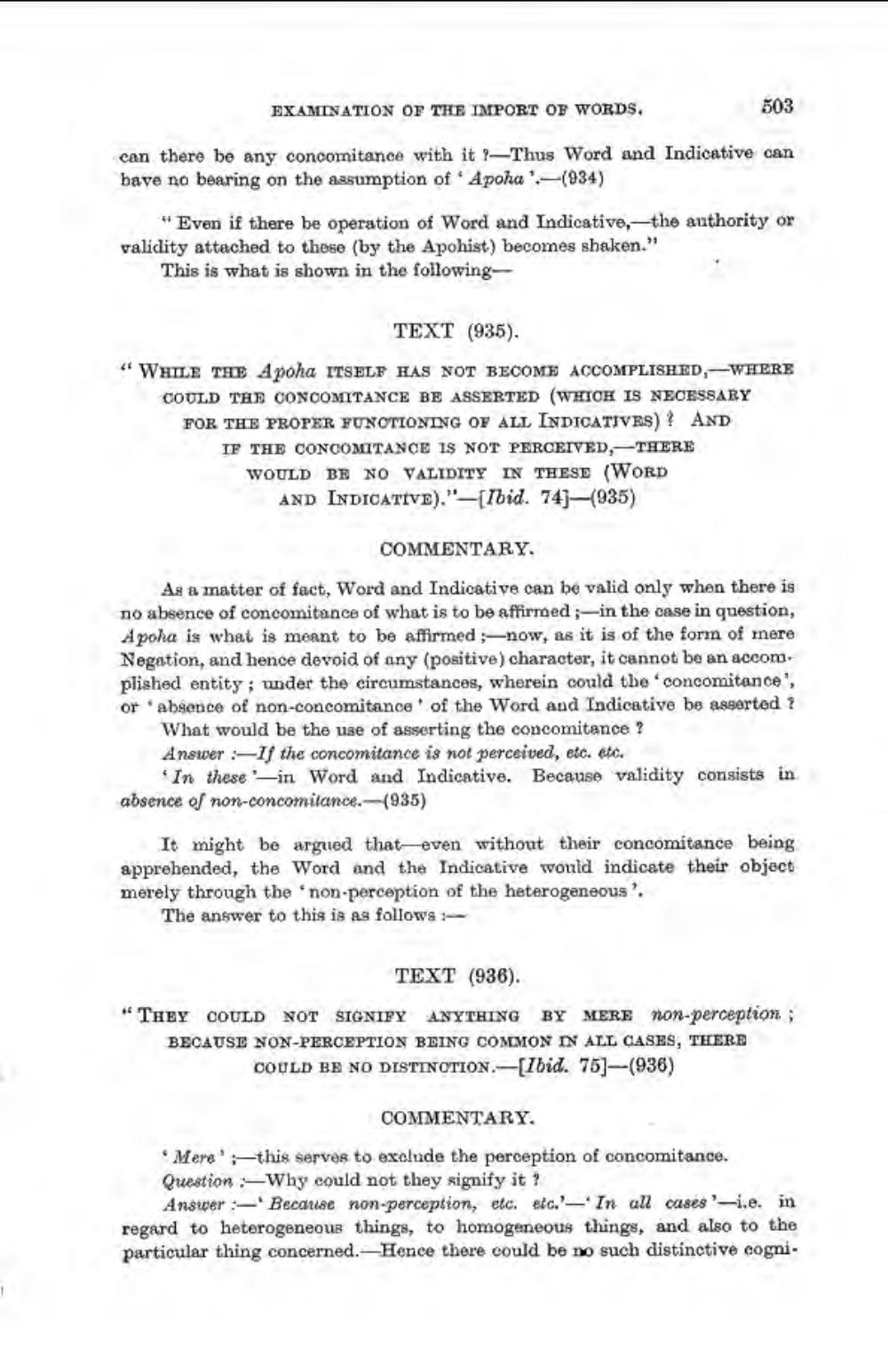________________
EXAMINATION OF THE IMPORT OF WORDS
503
can there be any concomitance with it -Thus Word and Indicative can bave na bearing on the assumption of * Apoha':-(934)
"Even if there be operation of Word and Indicative,—the anthority or validity attached to these (by the Apohist) becomes shaken."
This is what is shown in the following
TEXT (935). " WHILE THE Apoha ITSELF HAS NOT BECOME ACCOMPLISHED, -WHERE
COULD THE CONCOMITANCE BE ASSERTED (WHICH IS NECESSARY FOR THE PROPER YUNOTIONING OF ALL INDICATIVES) AND
IF THE CONCOMITANCE IS NOT PERCEIVED,—THERE WOULD BE NO VALIDITY IN THESE (WORD
AND INDICATIVE)." [Ibid. 741—(935)
COMMENTARY.
As a matter of fact, Word and Indicative can be valid only when there is no absence of concomitance of what is to be affirmed in the case in question, Apoha is what is meant to be affirmed now, as it is of the form of mere Negation, and hence devoid of any (positive) character, it cannot be an accom. plished entity; under the circumstances, wherein could the concomitance", or absence of non-concomitance of the Word and Indicative be asserted ?
What would be the use of asserting the concomitance ? Answer if the concomitance is not perceived, etc. etc.
In these in Word and Indicative. Because validity consists in absence of non-concomitance.-(935)
It might be argued that even without their concomitance being apprehended, the Word and the Indicative would indicate their object merely through the non-perception of the heterogeneous.
The answer to this is as follows:
TEXT (936).
“THEY COULD NOT SIGNIFY ANYTHING BY MERE non-perception ; BECAUSE NON-PERCEPTION BEING COMMON IN ALL CASES, THERE
COULD BE NO DISTINCTION-[Ibid. 75)--(936)
COMMENTARY.
Mere':-this server to exclude the perception of concomitance. Question Why could not they signify it ?
Answer :- Because non-perception, etc. etc. In all cases '-i.e. in regard to heterogeneous things, to homogeneous things, and also to the particular thing concerned.--Hence there could be no such distinctive cogni.




